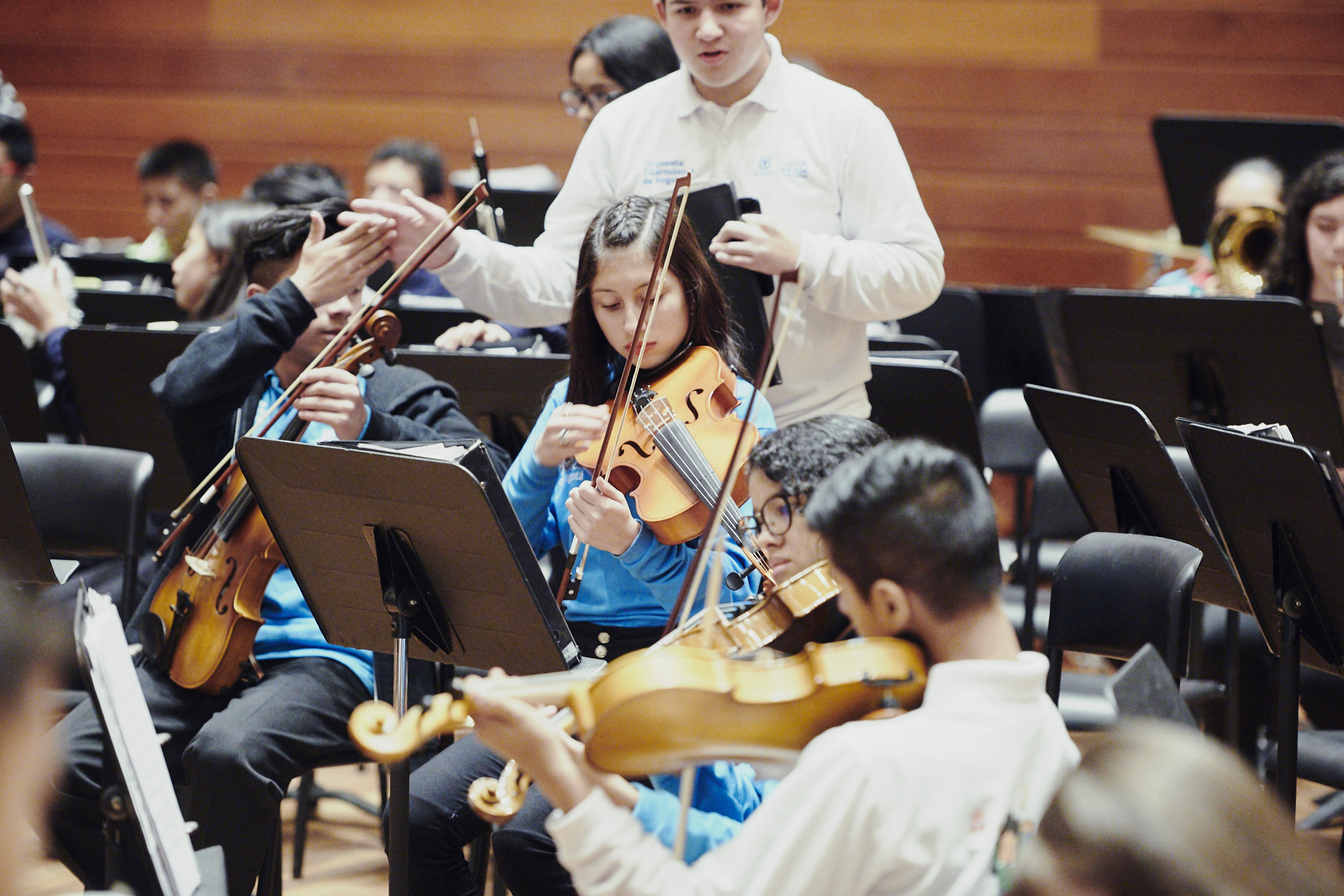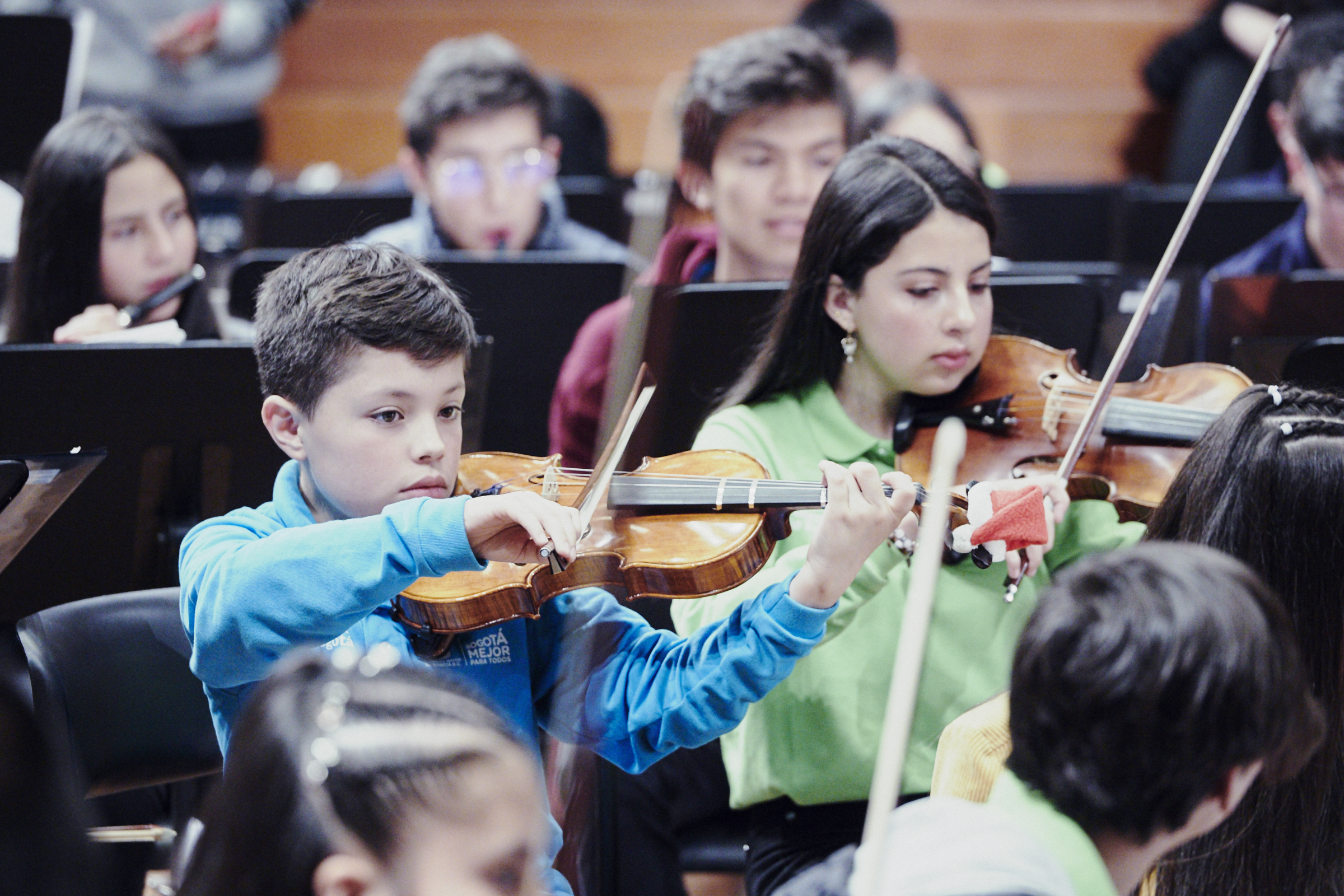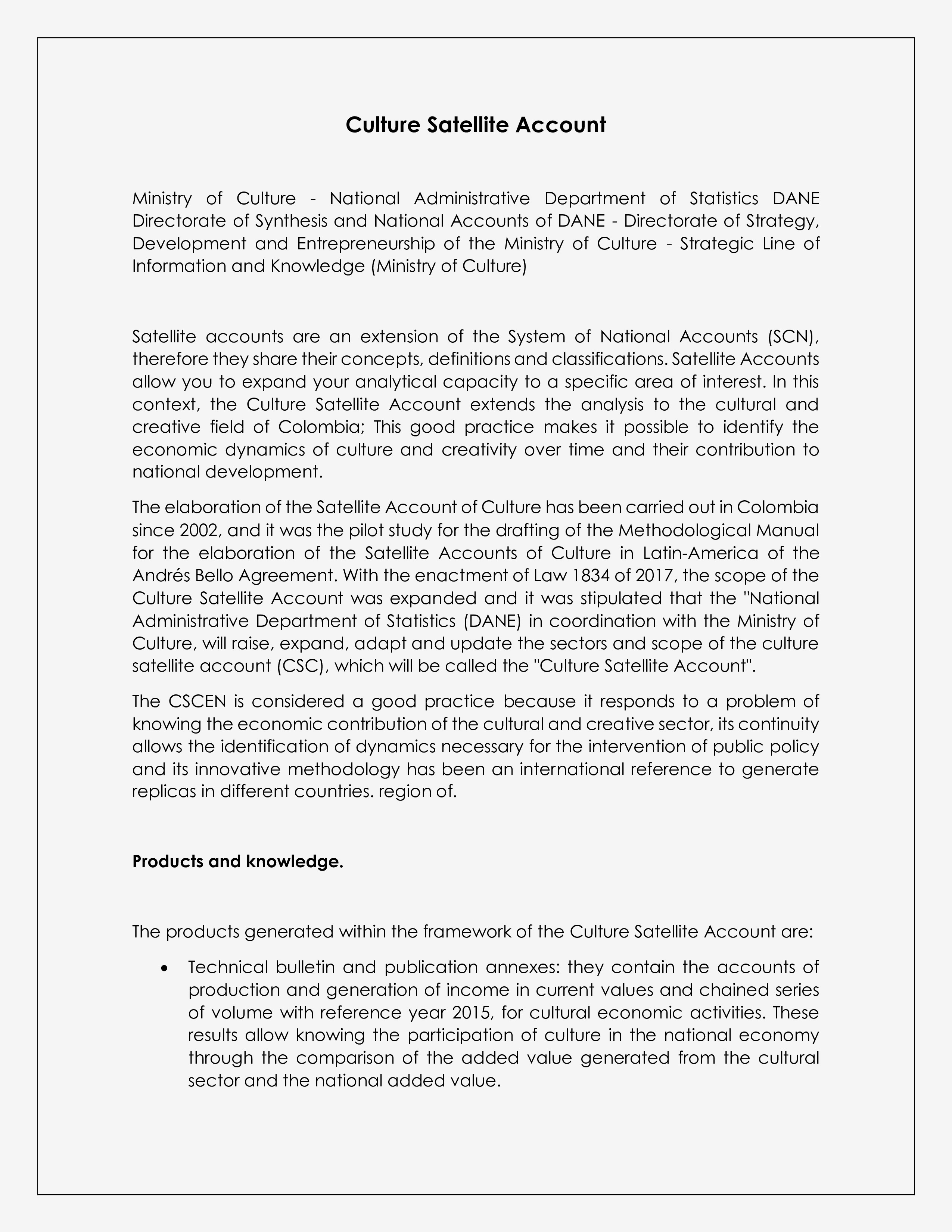 Capacity Building in Cultural Statistics for the Visibility of Uruguay's Cultural and Creative Industries
Colombia’s contribution to the visibility of cultural and creative industries in Uruguay
Capacity Building in Cultural Statistics for the Visibility of Uruguay's Cultural and Creative Industries
Colombia’s contribution to the visibility of cultural and creative industries in Uruguay

Challenges
In Uruguay, since the 1990s, efforts have been made to measure the contribution of culture in terms of production and employment. Three important studies have been carried out on this subject, in 2009, 2012 and most recently in 2019. These measurement efforts have deepened the knowledge of Uruguay's cultural and creative sectors.
However, these studies were partial, and the country does not have a complete timeline of information for all sectors. This remains a challenge as the information is scattered across different offices and agents that work in Uruguay's cultural and creative industries. Therefore, Uruguay has a need to update and systematize information on the contribution of cultural and creative industries (CCI) to national employment and GDP in the country.
Towards a Solution
The Capacity Building in Cultural Statistics for the Visibility of Uruguay's Cultural and Creative Industries initiative seeks to share the knowledge of the Colombian Cultural Information System to improve the methodology for measuring and analyzing economic indicators of cultural and creative industries in Uruguay that have had international recognition since 2013. Colombia had previously completed a similar knowledge transfer process with Costa Rica as part of its South-South cooperation activities and projects.
In 2021, the Ministry of Education and Culture of Uruguay requested that the Ministry of Culture of Colombia also share this good practice with their country to help Uruguay determine the true impact of cultural and creative industries on GDP. This work is in pursuit of SDG 8 (decent work and economic growth and SDG 5 (gender equality).
The initiative is being carried out through virtual meetings with representatives of Colombia’s cultural and creative government institutions sharing their data collection methodologies with Uruguay, particularly touching on statistical models used to calculate income generation and methodologies for measuring the value generated by the audiovisual, performing arts and phonographic sectors. It is expected that in 2022, the initiative will measure the impact of cultural and creative industries on the country's foreign trade. Uruguayan technical staff have been supported to prepare a work plan to improve the methodology currently used in the country.
This is a great opportunity for knowledge transfer and exchange of experiences, and is being done in such a way that the model from Colombia is being adapted and improved according to the needs and challenges of Uruguay. The quantification of the value generated from culture is a relatively new concept in the region. Having a successful model in the region to follow is allowing Uruguay to direct its policies in an efficient way to encourage the productive growth of the cultural and creative economy.
The initiative can be sustainable in the long term should (following positive results) the practice be institutionalized, which would continually demonstrate the value of the sector and give relevance to this type of measurement. By promoting women’s inclusion in the sector, greater participation can be ensured, which would generate more employment, adding even more importance to measuring the sector’s economic contributions.
This initiative can be adapted to other productive sectors and fields. Clear differentiation of the various population groups active in a productive sector, such as women and the LGTBIQ+ community, can help improve the understanding of the economic performance of the sector. A proposed suggestion of this initiative is to form an inter-institutional work strategy for satellite accounting of the cultural and creative economy in Uruguay.
Contact Information
Countries involved
Supported by
Implementing Entities
Project Status
Project Period
URL of the practice
Primary SDG
Primary SDG Targets
Secondary SDGs
Secondary SDG Targets
Similar Solutions
| NAME OF SOLUTION | Countries | SDG | Project Status | |
|---|---|---|---|---|
100% Online Electronic Apostille and Legalization Sharing Colombia’s effective e-government system with other countries in the region |
Colombia, Uruguay | 16 - Peace and Justice Strong Institutions | Completed | View Details |
Accelerating the Implementation of African Union Treaties in São Tomé and Príncipe South-South learning from the Beninese judicial system’s experience in the application of human rights treaties to its national law |
Colombia, Uruguay | 05 - Gender Equality | Completed | View Details |
Accelerating the Transformational Shift to a Low-Carbon Economy in Mauritius Towards supplying 35 percent of the country’s energy needs with renewables by 2025 |
Colombia, Uruguay | 05 - Gender Equality 09 - Industry, Innovation and Infrastructure 13 - Climate Action | Ongoing | View Details |
Access to Justice through e-Services and Dematerialized Case Management Scaling up connectivity and unlocking the digital potential of judicial institutions to enhance access to justice for all |
Colombia, Uruguay | 05 - Gender Equality | Completed | View Details |
Action Plan on Gender Equality and the Empowerment of Women at the National Level in the Arab Region Mainstreaming gender action within national institutions in the Arab region |
Colombia, Uruguay | 05 - Gender Equality | Completed | View Details |


